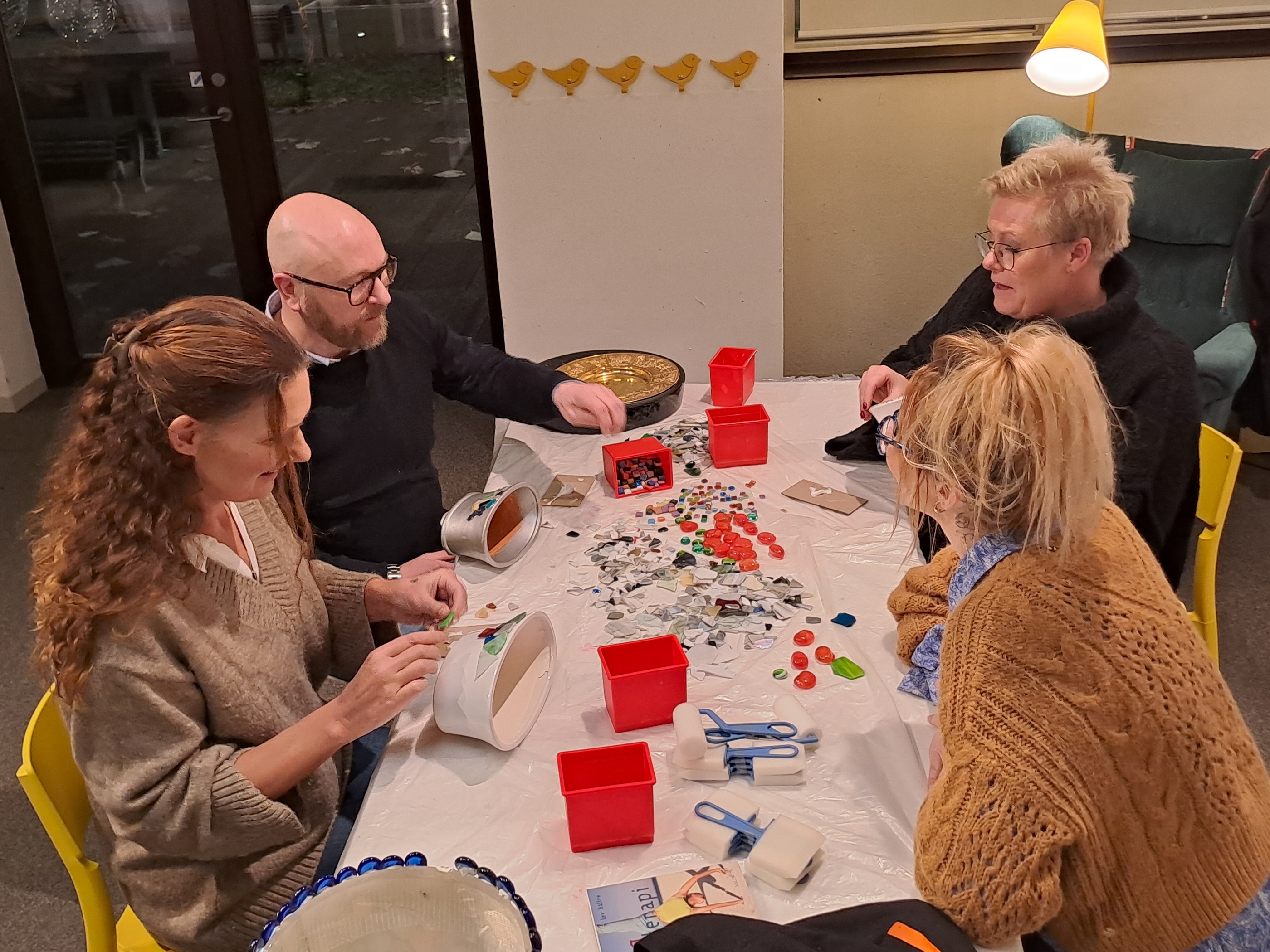Culture on Prescription improves mental health

Ingela Zander, Jonas Bråkenhielm och Anna Inganäs participants in Culture on Prescription together with the leader Alexandra Ekehage. Photo: Cecilia Gustavsson
People with mental illness or long-term pain who have participated in cultural activities together with others feel better. This according to a study by Paula Bergman, PhD student at the School of Health and Welfare at Jönköping University (JU). She has studied the effect of culture-supported rehabilitation, also known as Culture on Prescription.
On behalf of Region Jönköping County, Paula has investigated whether people who have been referred to Culture on Prescription on sick leave have had a long-term effect on their mental health. The people suffered from mental illness such as stress problems, anxiety, depression, or non-specific long-term pain.
Around 200 people who had participated in Culture on Prescription were included in the study, as well as an equal number from a control group. By studying the participants' change in stress, anxiety, and depression after six and twelve months, it was found that mental health had decreased in the participants compared to the control group. The biggest effect was found in relation to depression.
Cultural activities pose a challenge
"Yeah, but I can feel things that, I mean I had never tried and turning before, so I thought how is this going to be, I’m not going to make it, but I wanted to do it again, it was great fun. So, like, you don’t think you can do it, but when you have tried it, it was of course not so hard as I thought that it would be.”
Quote from a participant in Culture on Prescription.
Participants involved in Culture on Prescription meet twice a week for ten weeks. The group consists of 6-9 people and together they do some kind of cultural activity such as singing, acting in theatre, or doing different crafts, such as painting.
“The cultural activities help the participants to challenge themselves; just meeting for a "coffee" is not enough to bring about change. The meetings are fun and the social context is needed to dare to go outside their comfort zone, which in turn contributes to their development," says Paula.
All activities are voluntary and do not require the participants to perform or produce anything. Culture on Prescription is an activity that prepare the participants for work as they need to be there on time, go to new places, and meet new people.
“The study shows that it gives results, it means a lot for these people to be part of a context. It is therefore important that more people have the opportunity to participate in Culture on Prescription as an alternative or complement to their conventional healthcare," concludes Paula.
Six regions were included in the study: Region Jönköping County, Region Östergötland, Region Kalmar Län, Region Uppsala, Region Blekinge and parts of Region Västra Götaland. Two regions offered KUR at the time of the study.
- School of Health and Welfare
- paula.bergman@ju.se

